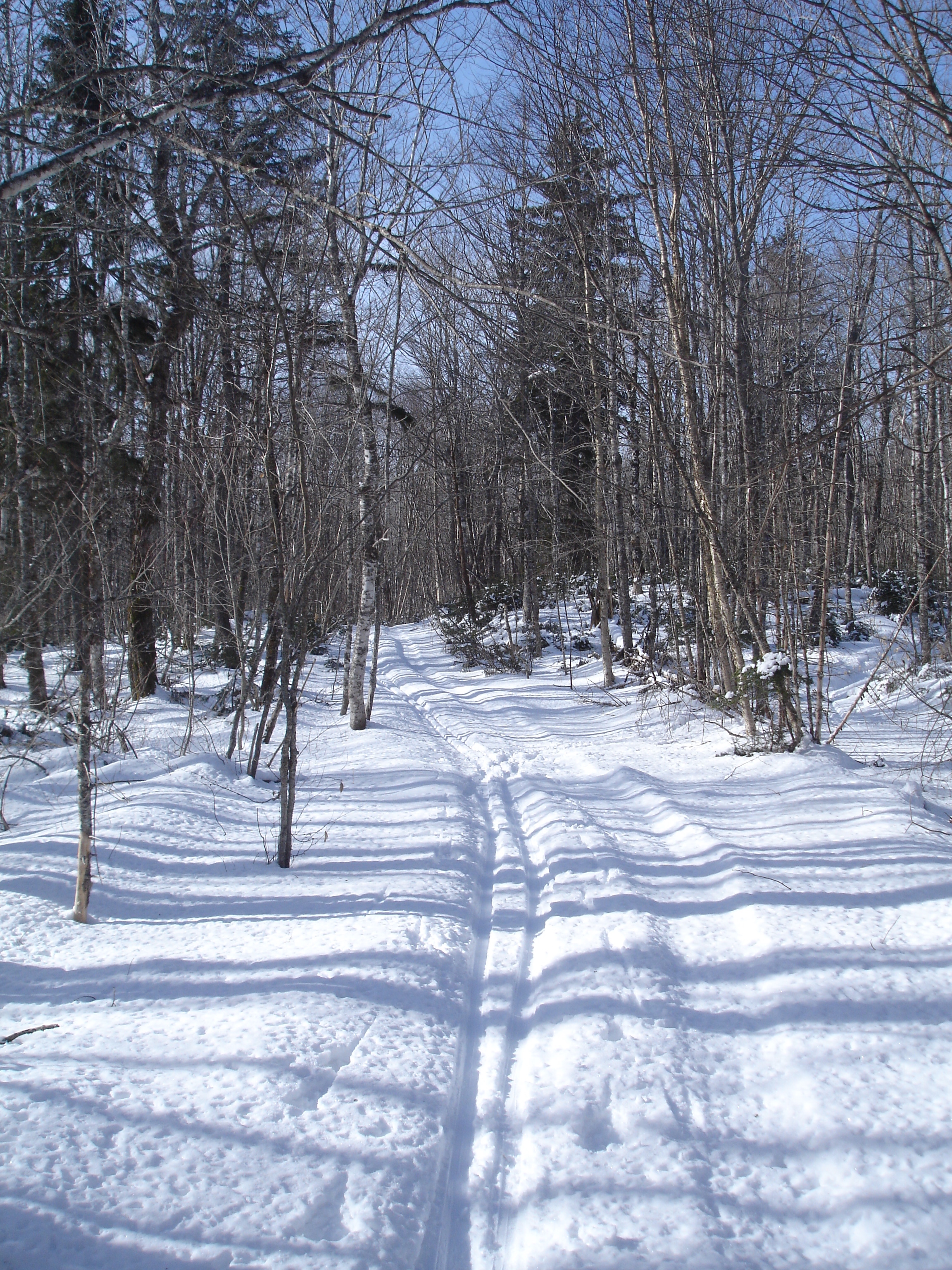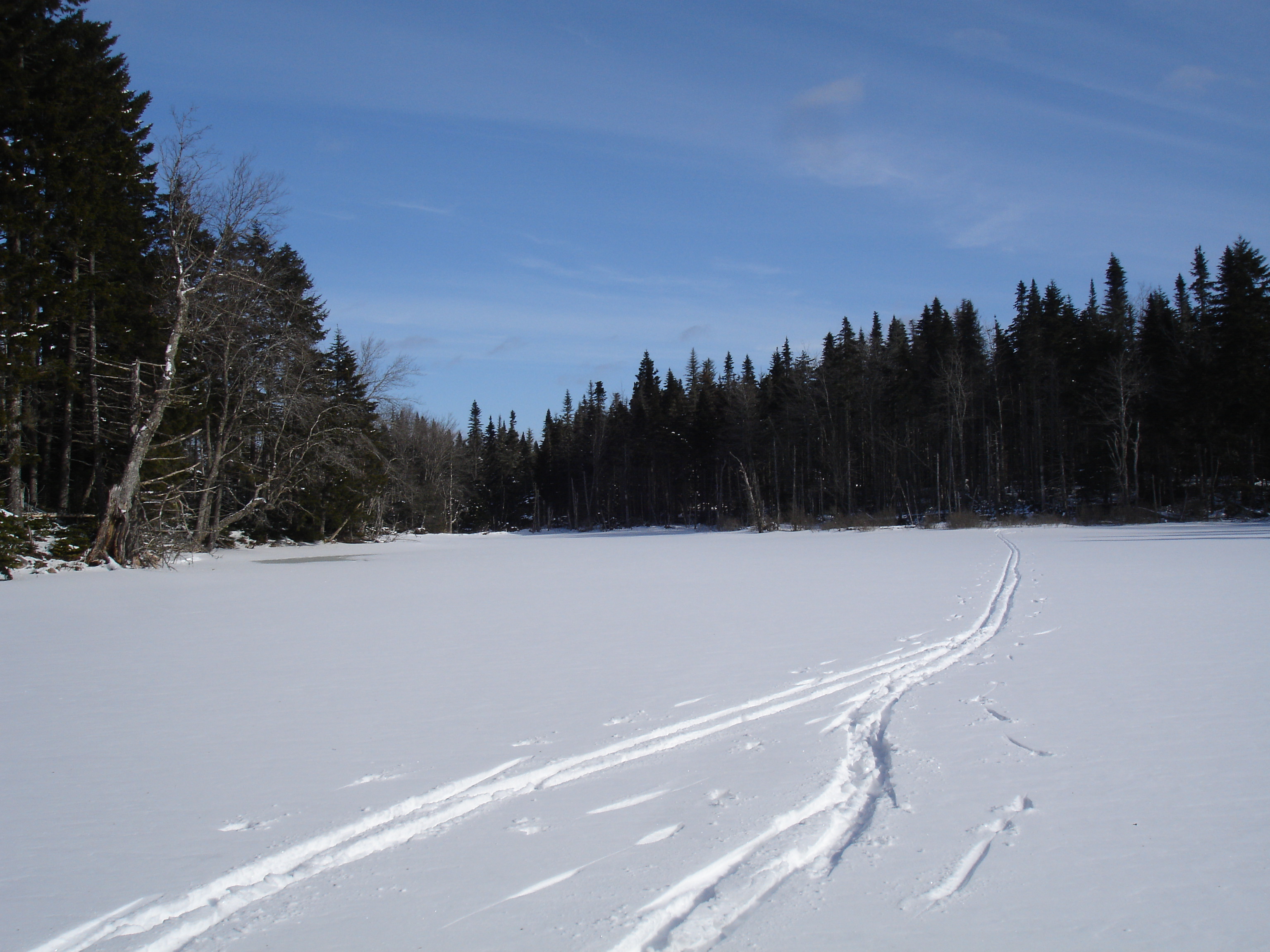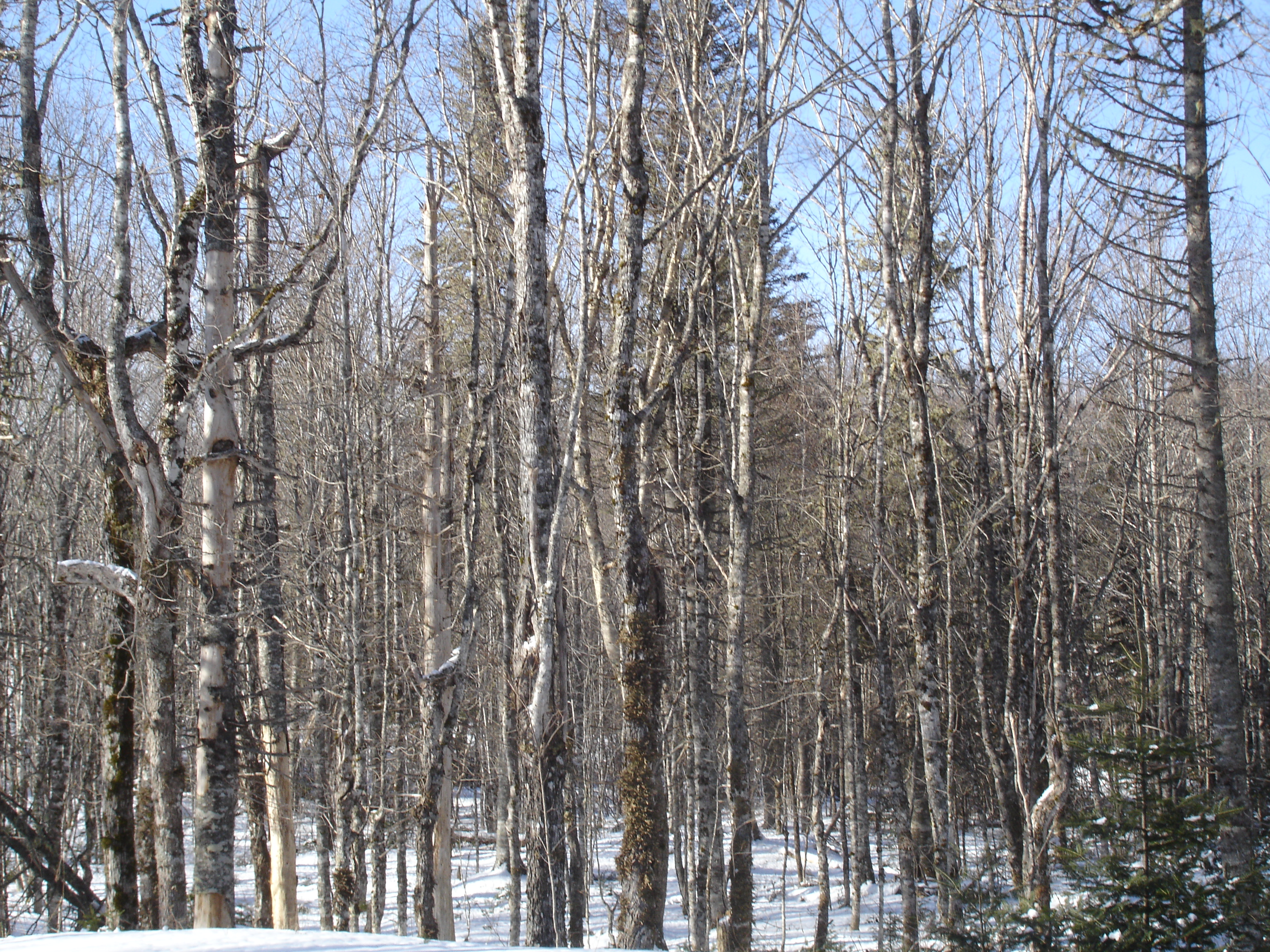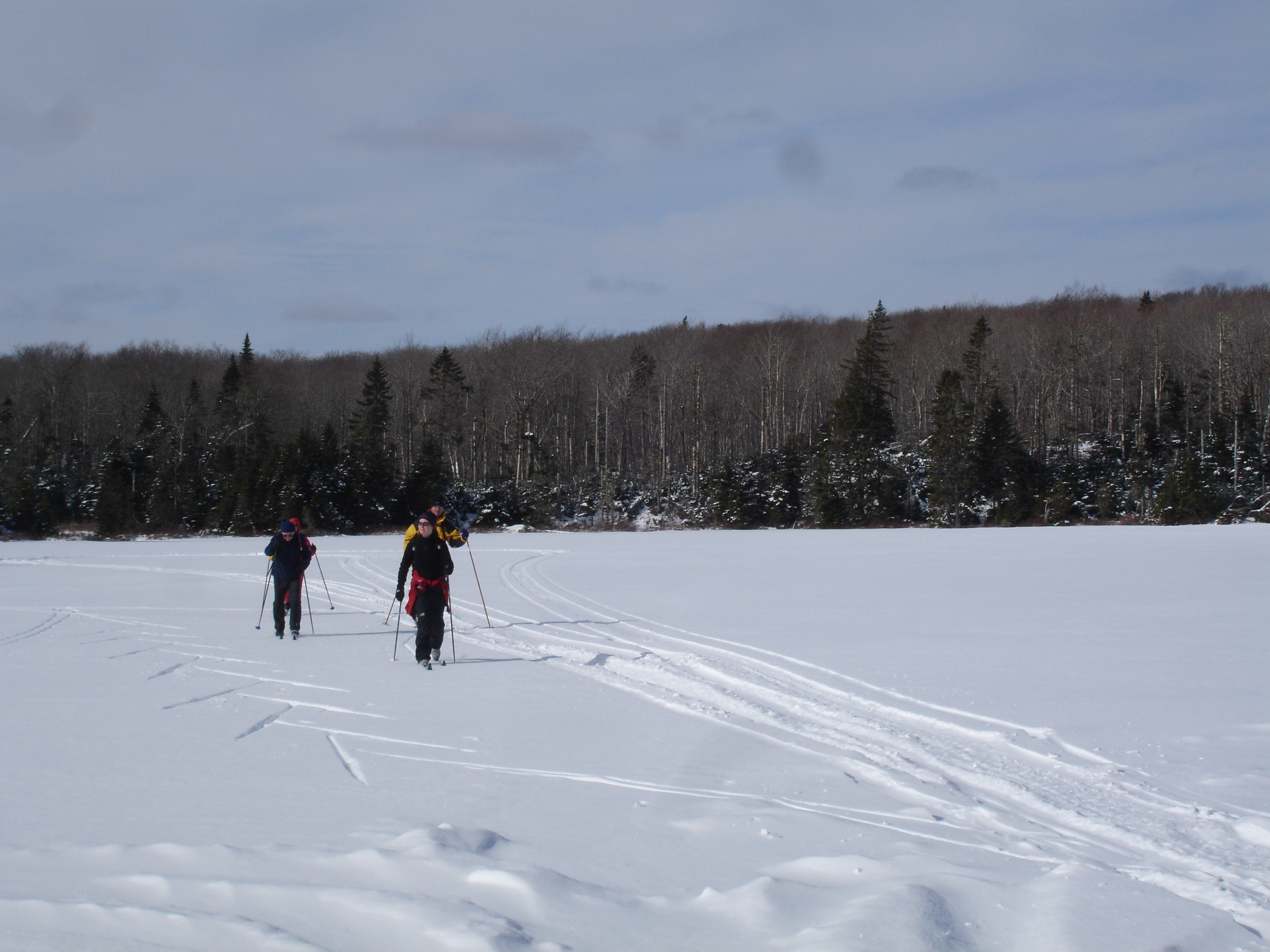Gully Lake on Cross Country Skis – A Perfect Winter Pastime

For those in the metro Halifax area who enjoy snow and the opportunity to exercise in cold temperatures there has not been much to cheer about the last few years. Little snow and mild temperatures have kept the cross-country skis and snowshoes in the basement. However, if you are prepared to drive an hour or two there are plenty of chances and places to enjoy winter. One of those is a cross-country ski trip through Gully Lake Wilderness Area in the Cobequid Hills not far from Truro..
Many Nova Scotians are aware of the government commitment to protect twelve percent of the land mass of the Province from future development by 2015. This initiative announced in 2007, builds upon work started almost two decades ago and has resulted in the designation of 68 Wilderness Areas that currently comprise close to the Province’s target. These Wilderness Areas are chosen for the unique and irreplaceable eco-systems they represent. Gully Lake was designated to protect the largest remaining hardwood stands in Colchester and Pictou Counties as well as the headwaters of the Salmon River which drains into the Bay of Fundy at Truro. The area is part of the Cobequid Mountains which regularly receive some of the largest amounts of snowfall in mainland Nova Scotia. The higher elevations translate into snow where other areas might be getting rain. All in all it’s a pretty safe bet that Gully Lake will have plenty of snow on any given winter day.

Despite being a Wilderness Area, Gully Lake is quite accessible by automobile. Altogether it should take about ninety minutes from metro, all on paved roads. Precise directions and information on all the trails can be found at www.cobequidecotrails.ca. There are also coloured trail maps that can be downloaded and printed.
In recent years the Cobequid Eco-Trails Society has done a terrific job of establishing a series of all-season non-motorized trails that really show off the beauty of this area. Although the trailhead is shared for a short distance with a snowmobile trail, after that there are numerous choices, all of which have their own merits. It is important to know in advance that these are back country trails that are not groomed and they require some level of experience on skis to feel comfortable with the ups and downs of the terrain; that is why it is a good idea to make your first visit to the area with an experienced guide. It may take a couple of visits before you are ready to tackle the real jewel of the system – the Gully Lake Trail.

This amazing trail starts four kms. from the trailhead and then completes a 10 kms. loop that follows the course of Juniper Brook climbing over 100 metres in elevation to cross the top of a small mountain (or large hill if you are really picky) to reach Gully Lake. Along the way there are several small waterfalls, sites of old logging camps and the ominously named Small Pox clearing. Much of the trail is on old logging roads while other parts wind through beautiful stands of birch and sugar maple which on a sunny day cast their shadows on the glistening snow which is criss-crossed with the tracks of snowshoe hare, squirrels, foxes and yes, coyotes too. The trees are festooned with many types of lichen, attesting to the clarity and healthy state of the air one breathes in here. Gully Lake is a great spot to stop for lunch and after that it is mostly a downhill run back to the trailhead.

Other less strenuous choices include the Willard Kitchener MacDonald Trail which is named for the Hermit of Gully Lake who lived in the area until his death not many years ago and the Sandy Cope Trail named for a famed Mi’kmaq guide who travelled the area at a much earlier time. The Cobequid Eco-Trails Society is also building an extensive trail system outside the Wilderness Area which we hope to report on in a future column.
Happy skiing!
If you are willing to go further afield, consider a trip to the Mont Tremblant region of Quebec to ski the legendary P’tit Train du Nord.

